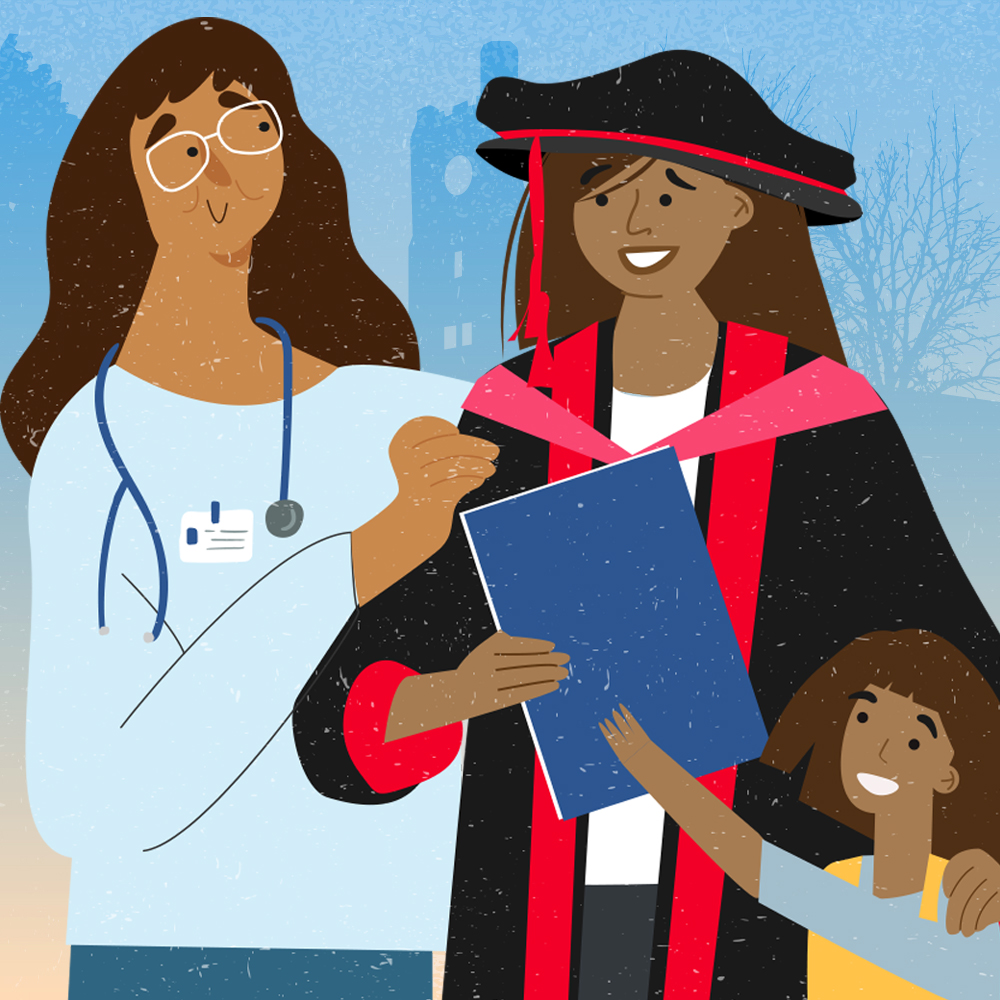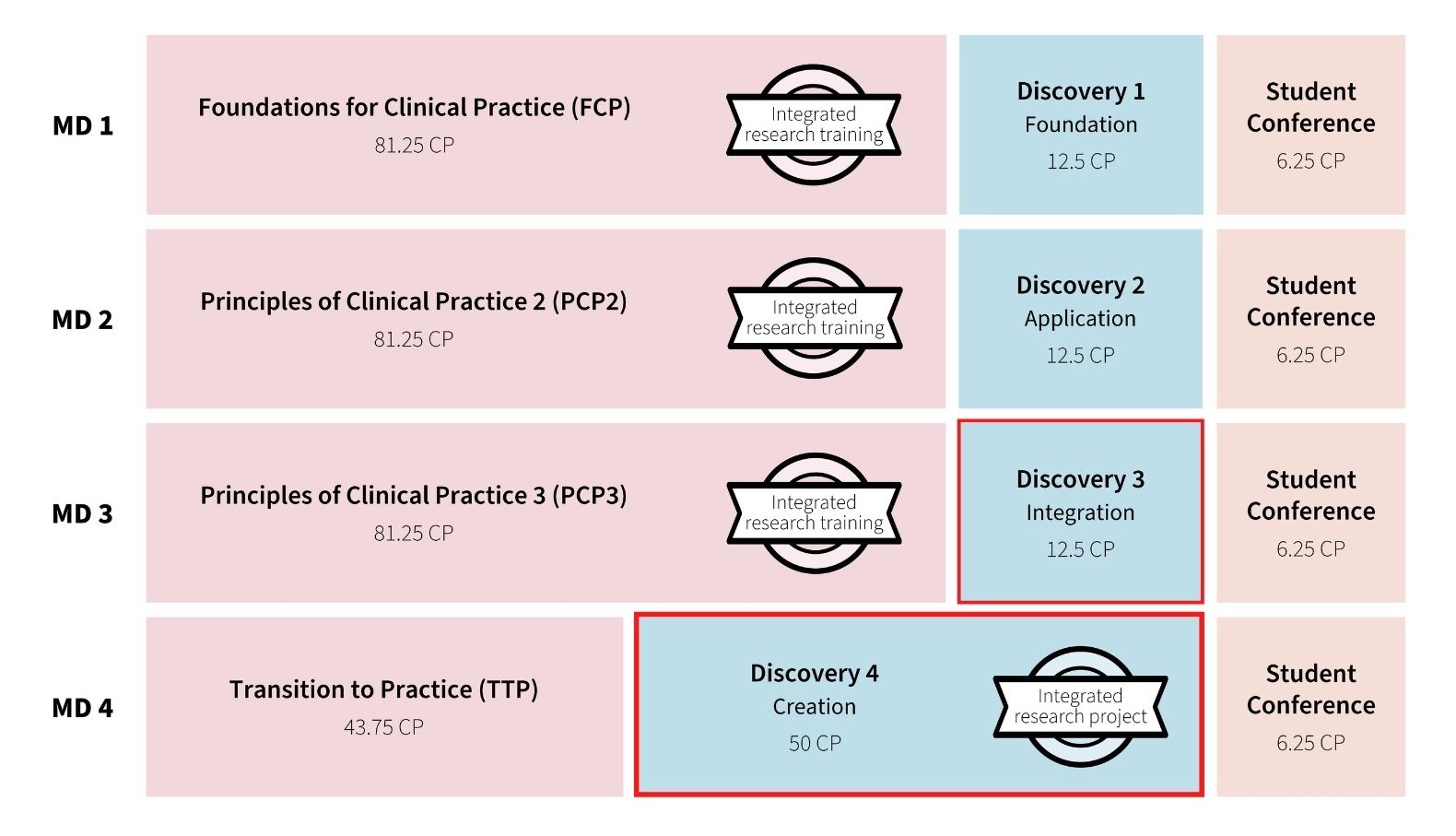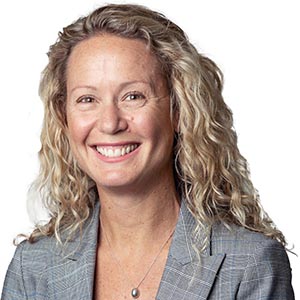MD-PhD Pathway
Overview
 The Melbourne MD-PhD pathway provides a unique range of opportunities for medical students to integrate a PhD into their MD program. It offers unparalleled flexibility, choice, and support for medical students who want to kick-start their career as clinician-researcher leaders of the future.
The Melbourne MD-PhD pathway provides a unique range of opportunities for medical students to integrate a PhD into their MD program. It offers unparalleled flexibility, choice, and support for medical students who want to kick-start their career as clinician-researcher leaders of the future.
While the Melbourne MD already equips students with the necessary skills to commence a career as a clinician-researcher, the pathway allows those with a deep interest in research to explore this exciting opportunity early in their medical training to lay a parallel foundation for their academic career.
The Melbourne MD-PhD is not an accelerated pathway. The minimum duration of the MD-PhD pathway is seven years, comprised of four years MD and three years PhD. Students will find that the research training components of the MD will have synergies with the PhD which will, in turn, inform and enhance their MD experience.
An example of the MD-PhD pathway with intercalation after MD1
Offering flexibility through a variety of entry points during the MD allows students to commence the MD-PhD pathway at the time most appropriate for them. A unique feature of the Melbourne MD-PhD approach is that each student's pathway is individually tailored in accordance with their needs, preferences, and life circumstances.
Diagrams on the timelines page show possible ways of completing the MD-PhD pathway, with other modes also possible. The optimal pathway will vary according to the individual’s needs and the nature of their PhD research activity. However, common to all pathways is that students can only commence their PhD after the first year of the MD.
Eligibility
MD students wishing to enrol in a PhD must have completed one of the following:
- A four-year Bachelor degree in a relevant discipline which includes a substantial research component equivalent to at least 25 percent of one year of full-time study and have achieved a minimum weighted average of 80 percent (University of Melbourne) or equivalent.
- A Master’s degree in a relevant discipline which includes a substantial research component equivalent to at least 25 percent of one year of full-time study and achieved a minimum weighted average of 80 percent (University of Melbourne) or equivalent.
- Successful completion of required MD research coursework from the first three years of the four-year Doctor of Medicine (MD) degree (or equivalent).
- A qualification and professional experience considered to be equivalent.
Applicants must also have completed the following:
- At least the first year of the Melbourne MD.
- An MD-PhD pathway proposal to be completed with the support of the MD-PhD course advisor, and endorsed by a prospective PhD supervisor.
International students who are interested in the MD-PhD should seek advice from the International Admissions Office in relation to their Confirmation of Enrolment (CoE) and visa implications.
It is important to note that meeting these requirements does not automatically guarantee selection as a PhD candidate. Each application and proposal will be assessed on its individual merits.
Each student will work with their clinical school, course adviser and RTA mentors to identify the right point at which to commence their doctoral research program, to integrate aspects of the two programs, and to ensure good progress in both research and clinical training while maintaining personal well-being.
To assist with application and entry to the program, students will be asked to:
- Have an early consultation with a course advisor to tailor their proposed MD-PhD program to their needs, in consultation with the Director of their clinical school.
- Provide a draft pathway proposal describing their intended program over the duration of the MD-PhD pathway.
Enquiries regarding pathway eligibility and the application process should be submitted to md-enquiries@unimelb.edu.au.

Timelines
The Melbourne MD-PhD is not an accelerated pathway. The minimum duration of the MD-PhD pathway is seven years, comprised of four years MD (which may include concurrent part-time enrolment in the PhD in the later years) plus three additional full-time years PhD. MD-PhD students will find however that the research training components of the MD will have synergies with the PhD which will, in turn, inform and enhance their MD experience.
Offering flexibility through a variety of entry points during the MD allows students to join the MD-PhD program at the time most appropriate for them. A unique feature of the Melbourne MD-PhD approach is that each student's pathway is individually tailored in accordance with their needs, preferences, and life circumstances.
Example pathway 1: MD-PhD pathway, with intercalation after MD1
This pathway is recommended for students who have completed Honours or equivalent prior to commencement of the MD.
Example pathway 2: MD-PhD pathway with intercalation after MD2
This pathway is recommended for students who have not completed Honours or equivalent prior to commencement of the MD.
Example pathway 3: MD-PhD as part of a whole career path
Integration into the MD
As part of the MD-PhD, if required, students will be exempt from enrolling in Discovery subjects in year 3 and 4 of their course, and can use this time to ensure timely completion of the PhD. This will allow for maximum flexibility and support toward successful completion of both the PhD and the MD.

Research Training Academy (RTA)
At the centre of the Melbourne MD-PhD is the Melbourne Medical School Research Training Academy (RTA), a ‘scholarly greenhouse’ that provides a supportive and facilitative community of practice for MD students undertaking joint degree pathways.
The RTA will offer MD joint degree students with access to a range of opportunities and resources including career guidance, mentorship and sponsorship to encourage a supportive environment during their studies.
The Research Training Academy (RTA) will be comprised of:
- Members - MD students undertaking a joint degree (for example: MD-PhD or MD-MPH).
- MACH-Track Fellows - Elite cohort of doctors selected to integrate PhD and research training with completion of their vocational training in accredited hospital specialties, or general practice.
- Alumni - Graduates of MD joint degree programs who are invited to act as junior supervisors and mentors to Members.
- Fellows - Senior clinician-researchers and supervisors, appointed by invitation, who will provide leadership and inspiration to Members and MACH Track-Fellows.

The RTA will provide students a greater understanding of the opportunities and challenges at different stages of their careers and to engage with like-minded clinician-researchers from many different research fields and clinical specialities.
Opportunities will be provided to develop key skills for 21st century researchers including training on:
- maximising research impact
- using social media and other new media
- entrepreneurship and leadership
- knowledge translation
- using emotional intelligence optimally as a clinician-scientist
- career planning
- development of teaching and supervision skills
- science communication
Access to extra learning resources, activities and mentoring will be available to all members of the RTA. However, individuals will determine the level of engagement which is most appropriate to their studies and needs. The right time to engage in these optional opportunities will differ for students, and guidance will be provided through the RTA to ensure students feel inspired and supported, rather than overwhelmed.
Watch the first RTA kick off event for more information.
Contacts
For any questions or enquiries about the MD-PhD, please contact:
Associate Professor Margie Danchin
Director, Clinician Scientist Pathways
Email: mdanchin@unimelb.edu.au
Enrolment
-
Will I be enrolled in the MD or PhD or both?
Although every student’s pathway is unique, while you are enroled in the PhD your MD studies will be suspended and then resumed once you return to clinical studies. Depending on your pathway you may be enrolled in a “holding” subject of the MD to allow you to maintain some clinical contact during your PhD.
-
When do I commence my PhD?
You can start your PhD anytime after successful completion of the first year of the MD right through to the beginning of the fourth year provided you meet the PhD requirments. The right time for you will depend on many factors which you should discuss with your potential PhD supervisors and members of the MMS Research Training Academy and the Department of Medical Education.
-
What if I have a PhD partly completed when I’m selected for the MD?
You can take leave from the MD any time after successful completion of the first year to resume and complete your PhD and then return to complete the remaining years of your MD. You may find that after completing the first year of your MD that you may wish to make some modifications to your project to fit your medical career path.
Staying connected with the MD cohort
-
How will I remain connected to clinical medicine during my PhD?
Many PhD projects allow you to remain connected to clinical medicine while you undertake your research. You will be encouraged to maintain contact with your clinical cohort and engage in some MD clinical opportunities through elective activities. Enrolment in an MD holding subject may be required to undertake these activities so that you remain insured and indemnified.
-
How will I maintain contact with my MD cohort whilst undertaking a PhD?
It is inevitable that the group with whom you start the MD will continue to move through their course while you are spending time on your PhD studies. However you will remain a member of your clinical school so that you can participate in community, social and appropriate learning activities there. MD-PhD students are invited to attend the MD Student Conference and will be given opportunities to present their research, as well as enjoying educational sessions and social networking. In addition to connections with your MD cohort you will develop close connections with other MD-PhD students who are also members of the MMS Research Training Academy through your shared PhD journey. You will also develop new networks through association with senior clinician researchers.
-
If I already had a PhD before being selected into the MD is there a pathway for me to stay engaged with postdoctoral work while I study the MD?
Yes, you are able to undertake postdoctoral research in your chosen area during the MD. Through the MMS Research Training Academy you will have mentors nominated to assist both in the development of a postdoctoral pathway and to guide you during this.
Research Training Academy (RTA)
-
What is the Melbourne Medical School Research Training Academy (RTA)?
The RTA is a virtual Academy for MD joint degree students. As a member you will be introduced to like-minded peers and mentors, and have the opportunity to be involved in educational events and research workshops. These will be hybrid events with as much face to face contact as possible. You will remain part of the Academy throughout your PhD candidature and then be invited to become part of the alumni community.
-
How do I join the RTA and who is part of the RTA?
Entry to the Academy as a Member will be offered to you as you commence your PhD or other degree at UoM. You’ll earn Alumnus status when you complete both courses, and you will be encouraged to remain part of the RTA and provide guidance and advice to other members as junior supervisors and mentors. Senior leadership within the Academy is provided by the MACH-Track fellows, who are completing PhDs as part of their vocational training after completing their MD, and senior Fellows, who are carefully selected senior academic clinicians and researchers who will actively mentor, supervise and inspire their junior colleagues.
Support and help
-
What support will I be given as I approach the final stages of my PhD?
Preparing for completion is a critical time for all PhD students and support from the RTA will be maximised. With guidance from your PhD supervisory team, you will be assisted to submit your thesis, plan for publication of papers, and to prepare for re-entry to the MD with a re-introduction to clinical learning. The intent is to facilitate timely and successful PhD completion for all candidates, as well as a confident, assured return to the MD.
-
How can I continue to develop my research career once I have completed my MD and PhD studies?
Having your medical degree and research doctorate (in addition to your prior degree/s) under your belt prepares you well for the next phase of your career. Your PhD supervisory team will guide you on decisions around starting your post-doctoral career, supported by mentors within the RTA. As an Alumnus of the Melbourne Medical School RTA, you remain connected to clinical colleagues in the MACH-Track clinician-scientist pathway who are undertaking postdoctoral research alongside their vocational medical specialist training which will further expand your professional networks.



